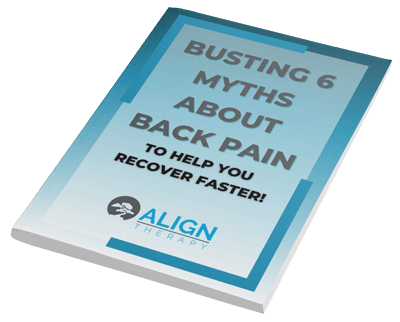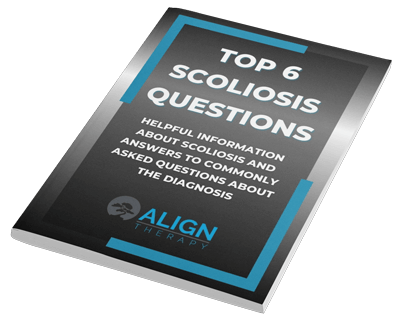Ever been in a foreign country and tried to order food off a long, complicated, unfamiliar-looking menu? Did you use hand signals to describe the dish you wanted? Did you whip out your phone and hope Google had the answers? And, in the end, did you just close your eyes and hope that what landed on your plate was pork, not pizza? Yes, this situation can be frustrating, especially when you don’t end up getting what you wanted! This also happens when you’re experiencing chronic pain. Allow us to explain.
When you’re in pain, your body is frantically trying to get your attention, waving hand signals, pointing at pictures, and speaking in a foreign language because it’s waiting for you to give it what it needs.
Few of us think of pain as a language, and yet, it is. Pain is a very detailed, specific way of communication. Think of it this way — when you stub your toe, your brain sends a signal to your brain that something is wrong. So, why would it be any different when it comes to chronic pain? From back pain to knee pain, all have one thing in common: they’re signals from the body.
And if your body is speaking to you — and for some of you reading this, it might be screaming at you — it’s time to take some notice. If you’ve experienced ongoing, debilitating pain – it’s not always easy to listen properly. You search for ways to find temporary relief, ways that don’t interfere too much with your already busy schedule. You might just not be understanding what your body is trying to tell you — and that’s okay. Most people don’t know what to do when they’re faced with a pain problem. And that’s why it’s absolutely vital to take a step back and start looking at one of the most important factors that could be contributing to your pain: stress.
Stress
For some people, general stress can be a motivator, pushing them forward to challenge their professional and personal boundaries. For others — this might not be the case. In fact, there are a lot of people out there who have become unfamiliar with the idea of “me-time” anymore because they’re stretched so thin. It’s easy for us to become so enveloped in our work, family, or other activities that stress goes unnoticed, not realizing what it could be doing to our well-being and our bodies.
Stress is a bit like moving a bucket of water from one end of a football pitch to the other. Continuously. You’re so focused on moving the bucket over the outer boundary that you don’t feel your knees and back giving way. You just keep going. Eventually, inevitably, the water spills, and you’re left with a mess to clean up.
What we sometimes don’t take into consideration is — what would happen if we put the bucket down?
In the case of emotional stress, too, the concept remains the same. Because the brain processes stress as trauma, it, therefore, suffers from the effects of anxiety and stress for a while after the body actually experiences them. Again, this type of stress needs to be dealt with. Action needs to be taken, otherwise, the metaphorical bucket will always be close to tipping.
It’s very evident in the world today that when you take the time to work on yourself, you feel better. Not only that but when you take much-needed breaks from work and stressful situations and focus on yourself and the things you want to do, your work and productivity actually improve. Despite traditional belief, working yourself down to the core won’t actually make the quality of your work any better – it’ll just leave you feeling stressed and empty. And this is also when your body could be giving you those signals we talked about earlier.
The pain in your back, knees, ankle, and so forth, is your body telling you that something is very wrong with your routine. That’s when it’s time to listen. Taking a step back, and assessing your habits and your stress levels could be the change you need to finally start feeling good again.
To summarize, taking the time to take care of yourself will only help you out in the long run. Take much-needed breaks, don’t stretch yourself too thin, and prioritize yourself and your well-being so you can continue to perform your very best and watch the pain fade into the background.
If you do this and are still experiencing chronic pain – no worries. Here at Align Therapy Clinic, Utah in Lehi, UT we specialize in helping people, just like you, reduce their pain so they can get back to living a quality life their way. To learn more about how we can help you win your life back, contact us today!



